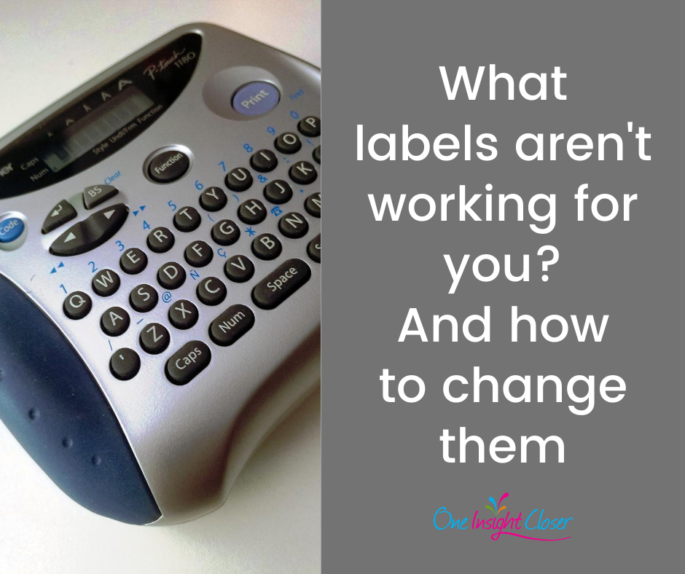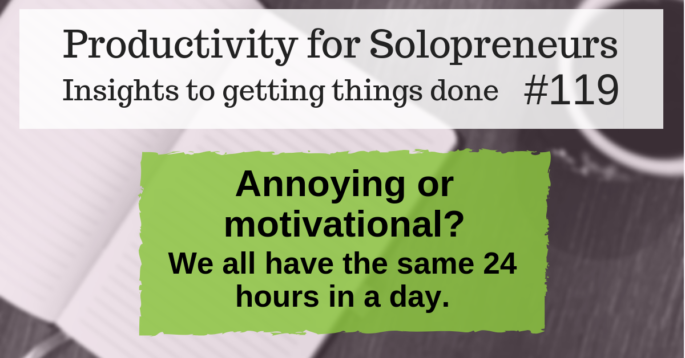Does anyone else love their label maker?
I do! I’ve had it for a few years, and even though I don’t use it on a weekly or even monthly basis, I love being able to label things.
Mostly I use it on file folders.
It makes things easy to file and find.
There’s a different label maker that I’ve had for even longer.
I can’t remember not having it.
It can label file folders, but it doesn’t label all of them. And it doesn’t label them in the way that label maker does either.
It’s labels cover so much more. A few examples of the labels it uses are frustrating, boring, annoying, meh, or fun.
It labels my intentions and goals as things like good, silly, unachievable, and doable.
It labels the items on my todo list with words and phrases like ugh, please no, boring, fun, let’s see how this goes, and hmm.
Actually, my goals and projects are sometimes labeled with many of the same words/feelings as my todo list labels.
If you haven’t guessed yet, this label maker is my brain.
It tries to be ever so helpful with these labels, but it can really work me up about things I don’t need to be.
For example, when I was able to stop labeling my bookkeeping as “UGH” and “avoid” and “do something else” it made it a lot easier to do.
I did that by noticing the labels I had given bookkeeping and deciding what labels I would like it to have.
The words that came to mind were “easy,” “quick,” and even “fun.”
The labels your brain puts on things can be harder to remove and replace then labels on file folders.
For me to change my labels around bookkeeping, I thought about what would make it easy, quick, and fun. I wrote down some ideas and started trying different things.
The first things I tried didn’t entirely work, so I made some adjustments. It took about three months to put a loose system in place that makes it pretty easy and quick. I’m okay with it not always being fun. The win is that I no longer avoid it and don’t feel “UGH” about it.
Everything starts with noticing the labels.
As you go through the rest of your week, notice the label you’re applying to your goals, projects, and tasks.
And answer these questions:
- Which labels do you want to change?
- What do you want to change those labels to?
- What ideas do you have about how you might change those labels?
- What idea or ideas can you start implementing?
I’d love to know what things you’re changing your labels for and how you’re doing it! Comment below to let me know.




 I was driving home and was at a point where two lanes merged into one shortly after an intersection. The cars ahead of me nicely merged together like a zipper, well before the lane ended. I left space to allow the car slightly ahead of me in the other lane to merge into.
I was driving home and was at a point where two lanes merged into one shortly after an intersection. The cars ahead of me nicely merged together like a zipper, well before the lane ended. I left space to allow the car slightly ahead of me in the other lane to merge into.
 I was talking with an acquaintance and asked “How are you?” and the response was, “Good I guess. I haven’t made any money this month.”
I was talking with an acquaintance and asked “How are you?” and the response was, “Good I guess. I haven’t made any money this month.”